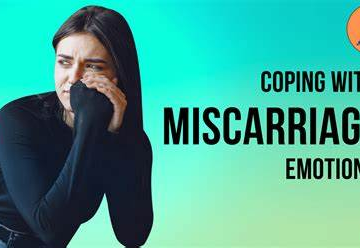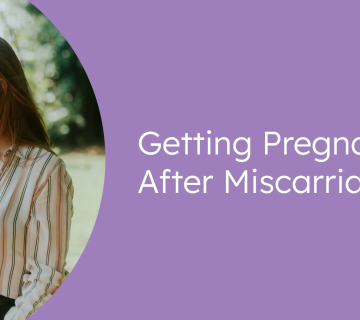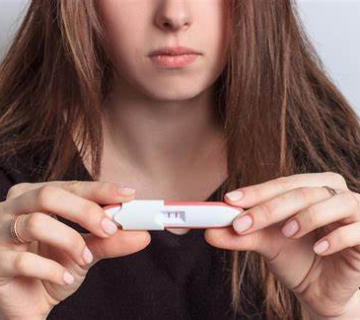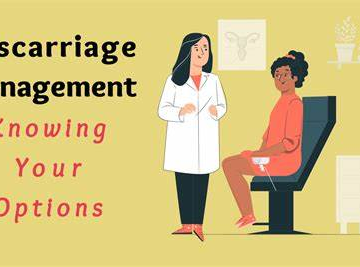
After Miscarriage: How Soon Do You Ovulate and What You Need to Know
Disclaimer: This article is for general information only. It does not replace medical advice, diagnosis, or treatment. Always talk to a qualified healthcare professional for personal medical guidance.
Miscarriage can be one of the most emotionally and physically challenging experiences a person can go through. Alongside the deep sense of loss, many also wonder about their future fertility: How soon can I ovulate again after a miscarriage? and Is it safe to try to get pregnant right away? These questions are natural and common. In this article, we will explore how your body heals, how quickly you might ovulate, and what factors can influence this timeline. We will also share practical tips on tracking ovulation, discuss recent research findings, and address emotional well-being. By covering every angle, we hope to help you feel more informed and supported as you move forward.
Understanding Miscarriage
A miscarriage, or pregnancy loss before 20 weeks, is more common than many people think. According to the American College of Obstetricians and Gynecologists (ACOG), around 10-20% of confirmed pregnancies end in miscarriage. The actual number may be even higher because many very early miscarriages happen before a person realizes they are pregnant.
Common Causes of Miscarriage
- Chromosomal abnormalities: Most early miscarriages result from issues with the baby’s chromosomes, which occur at conception.
- Hormonal imbalances: Low levels of hormones like progesterone can make it hard for the pregnancy to develop.
- Uterine or cervical problems: Certain physical issues (like uterine fibroids or an incompetent cervix) may lead to miscarriage.
- Infections: Some untreated infections, including sexually transmitted infections, can increase risk.
- Lifestyle factors: Heavy smoking, alcohol, and high levels of caffeine or stress may contribute.
Not every miscarriage has a clear cause. In many cases, there’s nothing you could have done differently to prevent it. While it can be hard not to have all the answers, it’s important to understand that the physical and emotional recovery process is unique to every individual.
Hormonal Changes After Miscarriage
After a miscarriage, your body begins to shift from pregnancy-mode back to its non-pregnant state. During pregnancy, hormones like human chorionic gonadotropin (hCG) and progesterone rise to support fetal growth. Once a miscarriage occurs, these hormones gradually return to their pre-pregnancy levels. How quickly this happens depends on factors such as:
- How far along you were: A later miscarriage (e.g., at 12 weeks) usually involves higher pregnancy hormone levels, meaning it may take longer for them to drop than it would with a very early miscarriage.
- Personal hormone metabolism: Everyone’s body clears hormones at different rates.
- Overall health: Your general health, any underlying conditions, and your body’s natural rhythm can influence how quickly hormones reset.
Why Hormone Levels Matter for Ovulation
- hCG levels: While hCG is high, your body typically will not ovulate because it still senses pregnancy hormones. Once hCG levels drop to around 5 mIU/mL or lower, your body may begin gearing up for ovulation.
- Progesterone: This hormone helps prepare the uterine lining. After a miscarriage, levels drop, then rise again when you ovulate.
- Estrogen: Estrogen increases before ovulation, which helps thicken the uterine lining and supports a new egg’s development.
In short, your body needs time to rebalance these hormones. When they return to normal, the typical menstrual cycle can resume—often leading to the first ovulation after the loss.
How Soon Do You Ovulate After Miscarriage?
One of the most pressing questions people have after a miscarriage is: “How quickly will I ovulate?” While everyone is different, many individuals can ovulate as early as 2 to 4 weeks after an early miscarriage. Here’s a general timeline:
- 1-2 weeks after miscarriage: Your pregnancy hormones are dropping. You might not have any signs of ovulation yet, especially if your hCG levels are still detectable.
- 2-3 weeks after miscarriage: For some, ovulation can occur around this time if their hormones have stabilized.
- 4-6 weeks after miscarriage: By this point, many will have their first menstrual period or at least some signs that their cycle is returning.
Note: This timeline applies mostly to early miscarriages (first trimester). If the miscarriage happened later or required surgical intervention (like a dilation and curettage), ovulation might take longer to resume.
Backing It Up With Research
A study published in Obstetrics & Gynecology in 2016 indicated that many individuals who had an early miscarriage and chose not to delay trying to conceive again were able to get pregnant within a few months. Another survey study from the British Medical Journal suggested that for those without complications, fertility could return surprisingly quickly—sometimes even 2 weeks after the loss. However, each person’s body is unique, so these figures are guidelines rather than guarantees.
Factors That Influence Ovulation Timing
Below are the main factors that can speed up or slow down how soon you ovulate after a miscarriage:
- Type of miscarriage:
- Early miscarriage (before 10 weeks): Shorter waiting time for hormones to drop, often leading to earlier return of ovulation.
- Later miscarriage (after 12 weeks): Higher hormone levels might mean a longer wait.
- Medical management:
- Natural miscarriage: Letting the process happen on its own can result in a faster hormone reset for some people.
- Surgical procedures (e.g., D&C): May temporarily disrupt the uterine lining. Some experience a slight delay in ovulation afterwards.
- Health and lifestyle:
- Chronic conditions: Diabetes, thyroid disorders, or PCOS (Polycystic Ovary Syndrome) can alter hormone levels and ovulation patterns.
- Stress: High stress can delay ovulation.
- Nutrition: Poor diet or low body weight can also affect cycle regularity.
- Emotional well-being:
- Grief and anxiety can cause physiological stress, which might make ovulation irregular.
Quick ✔️ and ❌ Checklist
✔️ Focus on a balanced diet (rich in protein, healthy fats, vitamins, and minerals).
✔️ Stay hydrated and consider mild to moderate exercise to support hormone balance.
✔️ Follow up with your healthcare provider to ensure all pregnancy tissue has passed or to confirm your uterus is healthy.
❌ Don’t panic if your cycle is a little different at first; mild irregularities are common after a miscarriage.
❌ Avoid extreme dieting or intense exercise that can disrupt your hormones further.
Signs and Symptoms of Ovulation After Miscarriage
Once your body is ready to release a new egg, you may notice signs similar to those you had before pregnancy. These signs may be slightly different immediately after a miscarriage because your body is still recalibrating, but common indications include:
- Cervical mucus changes:
- Fertile cervical mucus often looks like clear, stretchy egg whites.
- Basal body temperature (BBT) rise:
- After ovulation, BBT typically increases by about 0.4–1.0°F (0.2–0.5°C).
- Mild pelvic discomfort or cramps:
- Some individuals feel a slight twinge of pain in their lower abdomen, known as mittelschmerz.
- Breast tenderness:
- Hormonal fluctuations can cause breasts to feel sore or sensitive.
- Positive result on an ovulation predictor kit (OPK):
- OPKs detect luteinizing hormone (LH), which surges right before ovulation.
Spotting or Light Bleeding
Some also experience light spotting when the follicle ruptures and releases an egg. This is not dangerous but can be confusing because you might still be expecting bleeding related to the miscarriage. If you have heavy bleeding or severe cramps, it’s wise to contact a medical professional.
Scientific Research: What Do Studies Say?
Several studies have examined fertility soon after miscarriage. Highlights include:
- ACOG Guidelines: The American College of Obstetricians and Gynecologists notes that if you are physically and emotionally ready, there is usually no medical reason to delay trying for another pregnancy once bleeding has stopped.
- World Health Organization (WHO): WHO sometimes recommends waiting at least 6 months to conceive again, mainly to allow time for emotional healing and to reduce certain risks. However, this is a general guideline and may not apply to everyone.
- Recent Findings: A 2017 study in Human Reproduction found that those who tried to conceive within 3 months after an early miscarriage had a higher chance of a successful pregnancy.
It’s important to remember that these are averages and do not guarantee any specific outcome. Always discuss your personal history and health with a doctor to get the best guidance for you.
Tracking Your Fertility After Miscarriage
If you want to know exactly when (or if) you’re ovulating, fertility tracking can provide helpful insights. Here are some popular methods:
1. Basal Body Temperature (BBT) Charting
- What it is: Taking your temperature each morning before you get out of bed.
- How it helps: A steady rise in BBT usually means ovulation has occurred.
- Tip: Use a special BBT thermometer (which measures to two decimal points). Consistency is key—take your temperature at the same time every day.
2. Ovulation Predictor Kits (OPKs)
- What it is: Urine-based tests that detect the surge in luteinizing hormone (LH).
- How it helps: A positive OPK result suggests you are likely to ovulate in the next 24-48 hours.
- Tip: Test around the same time each day, ideally in the afternoon or evening, when LH levels are more stable.
3. Cervical Mucus Observations
- What it is: Monitoring changes in your discharge throughout the month.
- How it helps: Fertile mucus (clear, stretchy) often appears a few days before ovulation.
- Tip: Check your mucus at the same time each day, like before you shower or after you use the bathroom.
4. Fertility Apps and Wearables
- What it is: Smartphone apps and wearable devices that track your cycle, temperature, heart rate, or other data points.
- How it helps: They provide predictions and charts to help you see patterns in your cycle.
- Tip: Remember that apps offer estimates based on averages; your actual ovulation day may vary.
Emotional Healing and Self-Care
A miscarriage is not just a physical event; it’s an emotional one as well. Grief, confusion, anger, guilt—these feelings are common and valid. If you’re feeling overwhelmed, remember that emotional well-being is closely tied to physical recovery. High stress and depression can delay ovulation or disrupt your menstrual cycle.
Ways to Support Your Emotional Recovery
- Talk to someone:
- A therapist, counselor, or a friend who understands can make a huge difference.
- Join a support group:
- Many communities and online forums offer peer support specifically for pregnancy loss.
- Keep a journal:
- Writing down your feelings can help you process them more effectively.
- Practice mindfulness or relaxation techniques:
- Techniques like meditation, deep breathing, or gentle yoga can reduce stress levels.
- Set realistic expectations:
- Healing is not always a straight line. Give yourself patience and time to grieve.
When to Seek Medical Advice
It’s normal to have questions or concerns after a miscarriage. You should contact a healthcare provider if you experience any of the following:
- Excessive or prolonged bleeding: Heavy bleeding that soaks through more than one pad per hour, or bleeding that lasts for more than two weeks.
- Severe abdominal pain: Especially if accompanied by fever or foul-smelling discharge, which could indicate infection.
- No period after 8 weeks: If your period hasn’t returned and you’re not pregnant, let your doctor know so they can evaluate your situation.
- Repeated miscarriages: If you’ve had two or more miscarriages in a row, further testing might be needed.
Early communication with a healthcare professional can prevent complications and give you reassurance about your recovery.
Safe Steps to Boost Fertility
Although you can’t control everything about when or if you will ovulate, some lifestyle changes can support overall reproductive health:
-
Balanced Diet
- Include: Lean proteins (chicken, fish, beans), complex carbs (whole grains), healthy fats (avocados, nuts), and plenty of fruits and vegetables.
- Avoid: Excess sugar, trans fats, and highly processed foods.
-
Moderate Exercise
- Aim: 30 minutes a day, most days of the week, focusing on low-impact activities like walking, swimming, or yoga.
- Avoid: Extreme workouts that could disrupt hormone balance or cause unnecessary stress on the body.
-
Adequate Sleep
- Aim: 7-9 hours per night. Poor sleep can impact stress hormones, which in turn can affect ovulation.
-
Stress Management
- Try: Meditation, journaling, nature walks, or gentle stretching to lower cortisol (the stress hormone).
-
Limit Caffeine and Alcohol
- Caffeine: Consider keeping intake under 200 mg a day (about one 12 oz cup of coffee).
- Alcohol: Limit or avoid it, as it can interfere with hormone regulation.
-
Consider Prenatal Vitamins
- Folic acid: 400-800 mcg daily helps prepare your body for a healthy future pregnancy.
- Other nutrients: Iron, vitamin D, and calcium support overall health.
A Quick Nutrition Reference Table
| Nutrient | Role in Fertility | Good Sources |
|---|---|---|
| Folic Acid (B9) | Cell division, reduces neural tube defects | Leafy greens, beans, fortified cereals |
| Iron | Prevents anemia, supports ovulation | Lean red meats, spinach, lentils |
| Vitamin D | Hormone balance, bone health | Sunlight exposure, fish, egg yolks |
| Calcium | Bone health, vital for pregnancy | Dairy, fortified plant-based milks |
| Omega-3 Fatty Acids | Hormone regulation, reduces inflammation | Fatty fish (salmon, sardines), flaxseeds |
Addressing Common Myths About Ovulation After Miscarriage
Myth 1: You cannot ovulate until your next period arrives.
Fact: Ovulation actually comes before the period. If you ovulate and the egg is not fertilized, then you’ll have a period. So you can ovulate before seeing your first post-miscarriage period.
Myth 2: You must wait several cycles before trying again.
Fact: Many doctors say you can try again as soon as you feel physically and emotionally ready, assuming there are no medical complications. Some healthcare providers recommend waiting 1-3 months to ensure your body has recovered, but this varies.
Myth 3: A miscarriage means you’re likely to have fertility problems.
Fact: A single miscarriage is not usually a sign of ongoing fertility issues. Many people go on to have perfectly healthy pregnancies afterward.
Myth 4: Stress alone can cause miscarriage.
Fact: While stress isn’t helpful for overall health, it typically isn’t the sole cause of miscarriage. Most miscarriages occur due to chromosomal or genetic factors.
Real-Life Example: Sarah’s Story
Sometimes, personal stories can help illustrate what the ovulation process looks like after a miscarriage. Here’s a hypothetical scenario:
- Sarah had a miscarriage at around 8 weeks. She experienced bleeding for about a week.
- Approximately 2 weeks after the bleeding stopped, she noticed her cervical mucus became clear and stretchy—typical signs of ovulation.
- She used an ovulation predictor kit and got a positive result at about the same time.
- She and her partner decided to wait one full cycle for emotional reasons, but they felt encouraged knowing that Sarah’s body was returning to its usual rhythm.
- About 28 days after her miscarriage, Sarah got her period, which confirmed that she had ovulated and was now back on her monthly cycle.
This example shows that even though everyone’s timeline is different, it is possible to ovulate relatively soon after an early miscarriage.
Frequently Asked Questions (Q&A Style)
Q: Is it safe to get pregnant immediately after a miscarriage?
A: It can be, if you’ve had a straightforward early miscarriage and feel emotionally ready. Always check with your healthcare provider first, especially if there were complications.
Q: Can I use the same birth control method right away if I don’t want to conceive?
A: In most cases, yes. Talk to your doctor about timing and the specific type of birth control you prefer.
Q: How do I know if my hCG levels are back to normal?
A: Your doctor can run blood tests, or you can use home pregnancy tests until they show a clear negative. When hCG levels are below 5 mIU/mL, they’re considered non-pregnant range.
Q: Are there any supplements that specifically promote ovulation?
A: No magic pill guarantees ovulation, but a balanced diet and prenatal vitamins (including folic acid) can support a healthy cycle. Talk to your doctor before starting any new supplement.
Q: Does a miscarriage increase the chances of ectopic pregnancy later?
A: An early miscarriage doesn’t necessarily increase the risk of ectopic pregnancy unless there’s a specific medical history (like previous ectopic pregnancies or tubal damage). Always share any concerns with your healthcare provider.
Deeper Dive: Latest Research on Timing Between Pregnancies
Some newer research suggests that conceiving again within a few months of a miscarriage may improve the chances of a healthy pregnancy. A 2017 study in Human Reproduction analyzed data on women who miscarried in the first trimester. Those who conceived again within three months had higher live birth rates than those who waited longer.
However, these studies look at broad populations, and individual factors vary. Some people need time to heal emotionally and physically. Others may feel ready right away. Ultimately, your decision should balance medical advice with your own comfort level.
Step-by-Step Guide: Planning for a Future Pregnancy
If you’re ready to try again (or just want to plan), here’s a quick-step guide to help you prepare:
-
Confirm Complete Recovery
- See your healthcare provider to ensure your uterus is clear of any remaining tissue and that your hCG levels are back to normal.
-
Focus on Nutrition and Health
- Start or continue taking prenatal vitamins. Aim for nutrient-dense meals. Limit alcohol and caffeine.
-
Track Your Ovulation
- Use OPKs or BBT charting to understand when your body is ready.
-
Plan Intercourse Around Fertile Window
- Your fertile window typically includes the day of ovulation and the 3-5 days before it.
-
Get Emotional Support
- Whether through therapy, support groups, or close friends, prioritize mental well-being.
-
Follow Up With Your Healthcare Provider
- Regular check-ups can catch and address any issues early.
Practical Do’s and Don’ts
Below is a concise list of actions to consider after a miscarriage:
✔️ Do’s
- Schedule a check-up to confirm you’re healing well.
- Use gentle exercise like yoga or walking to reduce stress.
- Stay hydrated to support hormonal balance.
- Listen to your body for physical and emotional signals.
- Track your cycle if you want to understand your fertility window.
❌ Don’ts
- Don’t rush if you feel emotionally unprepared.
- Don’t ignore signs of infection such as fever, severe pain, or foul-smelling discharge.
- Don’t neglect mental health—take breaks, seek help, and allow time for grief.
- Don’t blame yourself—most miscarriages happen due to factors outside your control.
Common Long-Tail Keywords Naturally Addressed
- “Ovulation timeline after miscarriage”: We discussed typical ranges (2-4 weeks) and influencing factors.
- “Tracking ovulation after miscarriage”: We covered OPKs, BBT, and cervical mucus checks.
- “Factors that influence post-miscarriage ovulation”: Mentioned type of miscarriage, surgical intervention, and health conditions.
- “Signs of ovulation after pregnancy loss”: Listed cervical mucus, BBT changes, OPK results, and mild cramping.
- “Emotional support after miscarriage”: Emphasized counseling, support groups, and self-care.
- “When can you get pregnant after miscarriage”: Provided medical insights and research-based timelines.
By weaving these keyword phrases throughout the article in a natural way, we hope to make it more visible to those searching for answers online.
Final Thoughts
Miscarriage can be a difficult road, but understanding how your body heals—especially in terms of ovulation—can bring some comfort and clarity. There is no universal “right time” to ovulate or to start trying again. Your journey might look different from someone else’s, and that’s okay. Pay attention to both your physical signals and your emotional well-being.
We’d Love to Hear From You
- Have you noticed any interesting signs that helped you realize you were ovulating again?
- Did you try a specific method for tracking your cycle (BBT, OPKs, or an app)?
- What helped you the most emotionally during the waiting period?
Please share your experiences or questions below. Your story might help someone else going through a similar situation feel less alone.
Remember: Always consult your healthcare provider for personalized advice about ovulation, fertility tracking, and emotional support after a miscarriage. Every step you take toward understanding and caring for your body is a step forward, no matter how small it may feel. You are not alone, and brighter days lie ahead.




No comment